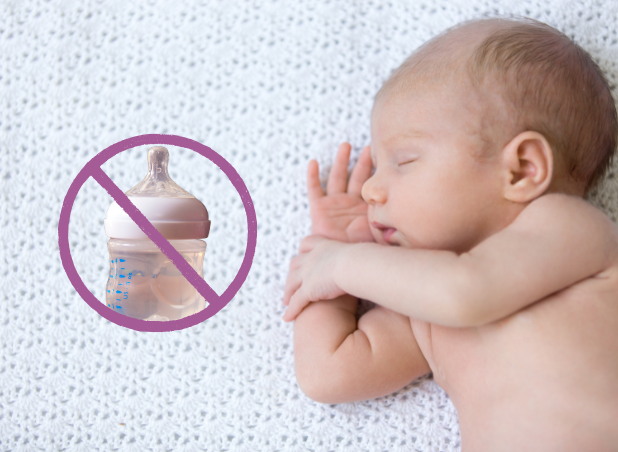As a new parent in Singapore, you’re probably wondering when it’s safe to let newborns drink water. This comprehensive guide will answer all your questions about baby hydration, from the right age to start to important safety considerations specific to Singapore’s climate and water quality.
From What Age Can I Let Newborns Drink Water
In Singapore, pediatricians recommend introducing small amounts of water to babies around 6 months of age, coinciding with the introduction of solid foods. This timing isn’t arbitrary – it’s based on your baby’s developmental milestones and nutritional needs.
Before 6 months, breast milk or formula provides all the hydration and nutrients your baby needs, even in Singapore’s tropical climate. Introducing water too early can actually be harmful to your little one’s health.
According to KK Women’s and Children’s Hospital, below is the ages and stages of feeding progression:
Why newborns can’t drink water
Baby Kidneys are Small
Your baby’s kidneys are still developing during the first six months of life. Before this age, their kidneys cannot efficiently process excess water. Their kidneys cannot handle as much water as adult kidneys.
Water Dilutes Their Calories Intake
Unlike adults who need water for hydration without any extra calories, infants require every calorie they consume from breast milk and formula.
Babies shouldn’t have water because it displaces essential nutrition from breast milk and formula in their extremely small stomachs. A newborn’s stomach capacity is roughly equivalent to an egg’s size, meaning it reaches capacity quickly.
When babies drink water, it occupies crucial space that should be reserved for nutrient-dense breast milk or formula, which provide the vital vitamins, minerals, and proteins necessary for healthy infant development.
Water Intoxication
You may wonder why giving babies water may lead to water intoxication?
Water intoxication is also known as water poisoning, water intoxication is a disruption of brain function caused by drinking too much water. Doing so increases the amount of water in the blood. This can dilute the electrolytes, especially sodium, in the blood. (Medical News today, 2025)
Without fully functioning kidneys, giving too much water to an infant can cause their bodies to release sodium, which is crucial for proper nerve function. The condition brought on by sodium loss is called hyponatremia, and it can be deadly. (Rachael. F, 2022)
Symptoms of Water Intoxication to Watch For:
- Drowsiness
- Lethargy
- Confusion
- Vomiting
- Seizures
- Swelling in hands, feet, or face
Common Myths About Babies and Water
Myth 1: “Hot Weather Means More Water”
Babies under 6 months do not need additional water. Breast milk and formula milk provide adequate hydration, even in hot weather.
Myth 2: “A Little Water Won’t Hurt”
Even small amounts of water before 6 months can interfere with nutrient absorption and potentially cause water intoxication.
Myth 3: “Constipated Babies Need Water”
For babies under 6 months experiencing constipation, consult your pediatrician rather than offering water. The solution may be adjusting feeding techniques or formula preparation.
When to Consult Your Pediatrician
Always seek professional advice if:
- Your baby shows signs of dehydration (dry mouth, fewer wet diapers, lethargy)
- You’re concerned about your baby’s fluid intake
- Your baby refuses to drink water after 6 months
- You notice any unusual symptoms after introducing water
Remember, every baby is unique, and while these guidelines provide a solid foundation, always consult with your pediatrician for personalized advice. They can provide specific recommendations based on your baby’s individual development, health status, and needs.
By following these evidence-based guidelines and staying informed about proper water introduction, you’re setting your baby up for healthy hydration habits that will last a lifetime.
How Confinement Angels can Help
At Confinement Angels, we offer experienced and well-trained nannies who understand newborn care with Singapore hospital practices. Besides, we also offer infant care class for parents!
Whether you’re searching for a reliable confinement nanny in Singapore or need the expertise of a MOM-approved confinement nanny, Confinement Angels has you covered. Our nannies bring years of experience in nurturing newborns through common challenges, giving parents peace of mind during the crucial postpartum period.
By combining traditional wisdom with modern baby care practices, our confinement nannies ensure your baby receives the best possible care while you recover and adjust to parenthood.
P.S – Known as the celebrities’ choice, Confinement Angels provides parents with complete peace of mind and maximum comfort by attending to every single aspect 108-hour syllabus, before being subject to another round of stringent evaluation to determine if they are ready to be deployed for assignments. Because at Confinement Angels, we go above and beyond to bring you only the best. We have won the best confinement nanny agency in 2024 awarded by theAsianparent Parent Choice’s Singapore.
References
Cleveland Clinic. (2023). When Can Babies Have Water. Retrieved from https://health.clevelandclinic.org/when-can-babies-have-water
Gill, K. (2020). Why You Shouldn’t Give Your New Baby Water — and When They’ll Be Ready for It. Healthline. Retrieved from https://www.healthline.com/health/baby/why-cant-babies-have-water
Rachael, F. (2022). Water Intoxication: Why Can’t Babies Drink Water? IFLScience. Retrieved from https://www.iflscience.com/water-intoxication-why-can-t-babies-drink-water-66453
KK Women’s and Children’s Hospital. (n.a.) Feeding in the First Year. https://www.kkh.com.sg/patient-care/areas-of-care/allied-health-services/Documents/nd-handouts/9.1.1%20Feeding%20In%20The%20First%20Year%20(Weaning)%20Eng%20_no%20QR_no%20PW.pdf








